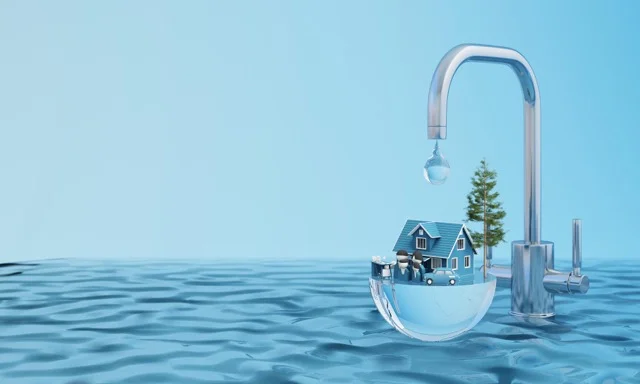Some Known Facts About Reclaim Waste.
Table of ContentsNot known Facts About Reclaim WasteSome Known Facts About Reclaim Waste.Reclaim Waste Can Be Fun For AnyoneHow Reclaim Waste can Save You Time, Stress, and Money.The Ultimate Guide To Reclaim Waste
Residential sewer waste refers to the waste and items from a residential septic tank. The correct administration and disposal of residential sewage waste require fluid waste to be transferred to a sewage therapy plant where the proper approaches and equipment are used to cleanse and dispose of waste.
Industrial waste usually includes potential hazards, such as combustible products or a mix of fluid and strong waste products, and calls for an extra innovative and comprehensive disposal process. The disposal of business waste usually involves the filtration of waste prior to transportation to make certain secure and appropriate disposal. Hazardous waste is developed from results and drainage of commercial procedures and production.
This sort of waste can not utilize the same sewer monitoring transportation or processes as septic or business liquids. The hazardous waste administration process needs the assessment and screening of liquid waste prior to it goes through the disposal procedure (liquid waste removal melbourne). Drainage waste is the liquid waste that comes from drainage and excess stormwater in extremely booming locations or cities
Overflow waste can cause contamination and flooding if not dealt with properly. Find out more regarding sewer cleaning and waste monitoring. Guaranteeing correct waste administration can prevent calamities and reduce environmental injury. Both people in property settings and specialists in industrial or production markets can gain from recognizing the processes and laws of liquid waste administration.
The Basic Principles Of Reclaim Waste
Contact PROS Providers today to discover our waste monitoring and disposal solutions and the appropriate means to take care of the fluid waste you create.
Do you recognize what occurs to your water when you disengage, flush the toilet or drain pipes the washing equipment? No? Well, it's worth recognizing. This supposed 'wastewater' is not just an important resource but, after treatment, will certainly be released to our land, waterways or the ocean. Made use of water from bathrooms, showers, baths, cooking area sinks, laundries and industrial procedures is called wastewater.

water utilized to cool down equipment or tidy plant and devices). Stormwater, a kind of wastewater, is runoff that moves from agricultural and metropolitan locations such as roofs, parks, yards, roads, courses and rain gutters into stormwater drains pipes, after rainfall. Stormwater streams without treatment straight to neighborhood creeks or rivers, at some point reaching the sea.
Some Known Questions About Reclaim Waste.
In Queensland, many wastewater is treated at sewer therapy plants. Wastewater is moved from domestic or commercial websites with a system of sewage systems and pump terminals, understood as sewage reticulation, to a sewer treatment plant.
The Division of Natural Resources advises local federal governments concerning managing, operating and maintaining sewerage systems and therapy plants. In unsewered areas, city governments may need householders to install individual or family sewage treatment systems to treat domestic wastewater from toilets, cooking areas, bathrooms and laundries. The Department of Natural Resources authorizes the use of household systems when they are proven to be efficient.
The majority of stormwater receives no therapy. In some new communities, treatment of some stormwater to get rid of litter, sand and gravel has started using gross toxin traps. Wastewater treatment happens in four phases: Eliminates solid issue. Bigger solids, such as plastics and other things wrongly released to sewage systems, are gotten rid of when wastewater is passed via displays.
Wastewater after that moves right into large tanks where solids resolve and are gotten rid of as sludge. Oil and residue are skimmed from the surface. Utilizes small living organisms referred to as micro-organisms to damage down and eliminate staying liquified wastes and great bits. Micro-organisms and wastes are included in the sludge. Eliminates nitrogen and phosphorus nutrients that might cause algal flowers in our rivers and threaten water life.
Get This Report on Reclaim Waste
Nutrient elimination is not readily available in any way sewer therapy click for source plants due to the fact that it requires pricey specialized devices. It is ending up being extra common in Queensland. Clear liquid effluent produced after treatment might still contain disease-causing micro-organisms. If this effluent is released right into waterways such as rivers or the sea, the micro-organisms will ultimately pass away out.

Many wastewater streams into the sewerage system. Under the Act, regional governments carry out approvals and licences for eco relevant tasks (ERAs) entailing wastewater releases that might have a local influence.
8 Easy Facts About Reclaim Waste Shown
Otherwise, examples are considered lab evaluation. Commonly several tests are required to establish the levels of each of the various pollutants such as oils, heavy metals and pesticides in water. Surveillance provides accurate details concerning water top quality and can validate that licence problems are being satisfied. The details gotten through monitoring gives the basis for making water quality choices.
Comments on “The 7-Second Trick For Reclaim Waste”